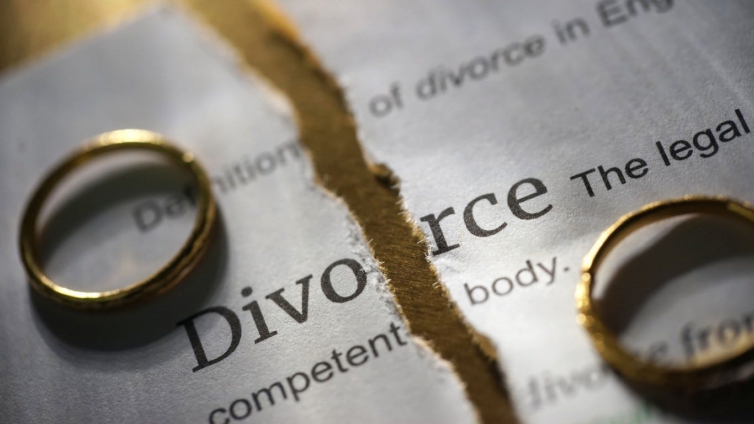Those hoping to hide their assets from their spouses to avoid sharing them during divorce will not get away with it under Ghanaian law.
European footballer and player for French soccer team PSG, Achraf Hakimi, 24, has received some nods on social media for allegedly blindsiding his wife, Hiba Abouk, 36, by transferring his wealth into his mother’s name, leaving his wife to walk out of the marriage empty-handed.
The mother of two had demanded more than half of the footballer’s fortune but discovered that the PSG star has no assets as he had put his entire fortune under his mother’s name.
However, this tactic may not work as expected in Ghana.
According to legal practitioner and partner at Morrison, Twumasi and Partners, Rendorf Twuamsi Ankrah, while it is possible to transfer wealth acquired during a marriage, doing so with the aim of enjoying the benefits of it solely is not acceptable.
The lawyer speaking on JoyNews’ The Law explained that Ghanaian law presumes that any property acquired within the course of a marriage is jointly acquired and thus any action to be taken in connection with said property must receive the explicit consent of the other spouse.
“Now in law, we have what we call trust and we also have what we call tracing. As we have already stated, the law presumes that property acquired in the course of a marriage is jointly acquired properties and the new Lands Act puts an impediment in your way that even if you want to use marital property to secure a loan or for whatever it is, you need the consent of the other person and you can’t even register it without the consent of the other party in your sole name. So clearly the position of the law is well established now,” he explained.
He added that in the event that an individual acquires the property during the marriage in the name of a friend, a family member (for instance your mother as Hakimi had done) or even a corporate entity, the property could still be declared joint property and be equitably distributed.
“If the other person is able to show that this particular property which is situated here or there was acquired in the course of the marriage based on our joint efforts as spouses even though it is registered in the name of – it doesn’t even matter if it’s a land title – even though it is in the name of Mr Amponsah ‘this property belongs to my husband and myself so court please declare me a joint owner or declare that Mr. Amponsah holds it in trust for both of us'."
“What needs to be established in such a situation is first and foremost being able to prove that it was acquired in the course of the marriage and was acquired based on the joint efforts of the parties,” he explained.
Regarding what ‘joint efforts’ entail, legal practitioner and partner at Beyuo and Co. Iris Aggrey-Orleans explained that ‘joint efforts’ does not necessarily mean both spouses contributed money to acquire or develop the said property.
‘Efforts’ here, she said, could also refer to unpaid care work – i.e. cleaning, washing, ironing, cooking etc. and in the case of a successful footballer even travelling.
“The two of you have put together resources and I will not use the word money because resources could be time, could be energy and it could be money. So you’ve put together resources to acquire property. Upon divorce, whether or not that property is registered in another person’s name, that property becomes a matrimonial asset and you’re entitled to enjoy that equitably,” she said.
This law as stated in Article 22 of the 1992 constitution is gender neutral and applies to both spouses.
So how does one protect their right to solely own property acquired during a marriage?
“I think that basically, one must be honest with the spouse. If you intend to own property alone just state it. If you think that the marriage you are in is such that you cannot safely own property and you want to own property and you want to own it alone, just be honest and leave,” Ms Aggrey-Orleans advised.
Or better yet, sign a prenuptial agreement!
Latest Stories
-
Photos from Day 3 of Ecobank-JoyNews Habitat Fair in Tema
26 minutes -
Coding controversy: Cybersecurity pro decodes Ghana deputy minister’s answer – right, wrong, or misunderstood?
30 minutes -
Bawumia’s Congress Speech: An oratorical masterpiece that will go down as one of his greatest
32 minutes -
E-Governance not a luxury, it is a necessity – Julius Debrah to Civil Service
44 minutes -
UHAS seeks international partnership to advance health technology training
46 minutes -
Tragedy as family of 10, 15 others feared dead in boat mishap in Nigeria
52 minutes -
Third place at WAFCON a sign of progress in Women’s football – Jennifer Cudjoe
1 hour -
Bawku conflict: Gov’t issues curfew in Bawku and Nalerigu
1 hour -
Gov’t deploys Armed Forces to enforce peace in Bawku amid violence
1 hour -
First Mpox death recorded in Ghana; 23 new cases confirmed
1 hour -
Bawku conflict: Students killed, MP’s residence set ablaze
1 hour -
Mohammed Camara stars as Kotoko beat Kaizer Chiefs for 2025 Toyota Cup
2 hours -
When ‘What is Coding?’ becomes Ghana’s digital wake-up call
4 hours -
‘New team’ Petroleum Hub fall to Ghana Gas in friendly despite strong showing
4 hours -
Hockey tournament held in Accra to honour late President Atta-Mills
4 hours

